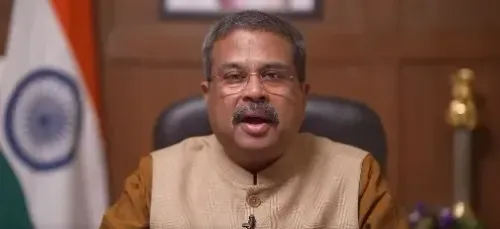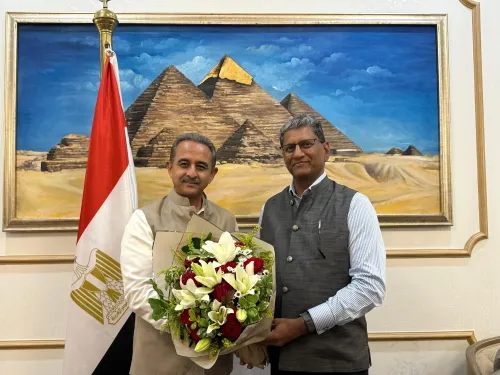How Did Delhi Achieve 199 Clean Air Days in 2025?

Synopsis
Key Takeaways
- 199 clean air days achieved in 2025, nearly doubling from 2016.
- Success attributed to leadership and coordinated efforts.
- Technology plays a crucial role in air quality management.
- Continuous monitoring and community involvement are essential.
- Delhi aims for sustainable air quality improvement.
New Delhi, Oct 12 (NationPress) Delhi has achieved 199 clean air days this year, a significant leap from the 110 days recorded in 2016. This impressive progress indicates an almost 100% improvement and suggests that the city is on course for its highest tally ever in 2025, stated Environment Minister Manjinder Singh Sirsa on Sunday.
Sirsa attributed this remarkable turnaround to the visionary leadership of Prime Minister Narendra Modi and the effective implementation by Chief Minister Rekha Gupta.
The positive trend is a reflection of a cohesive, technology-driven approach that effectively translates policy into measurable actions throughout the seasons, he elaborated.
“This success is not coincidental or merely due to weather; it is the result of ongoing, coordinated efforts. Under the guidance of CM Rekha Gupta, Delhi has transitioned from theoretical commitments to practical, tech-oriented outcomes,” he remarked.
“From controlling road dust to landfill bio-mining, mechanized sweeping to misting and plantation initiatives—efforts are being made around the clock. When intentions are pure and actions are synchronized, results are inevitable,” Sirsa stated.
On Sunday, the city's AQI was reported at 167, showing a significant improvement from the previous day.
This achievement is a product of daily environmental diligence throughout the capital, with ongoing dust control, waste management, and vehicle pollution monitoring, he explained.
“Every clean day in Delhi is hard-earned—thanks to thousands of workers, engineers, and officials collaborating under a system of accountability. This is effective governance, not merely appealing promises,” Sirsa emphasized.
Detailing the actions undertaken in the past 24 hours, Sirsa reported that 10,729 MT of garbage was removed, 6,414 km of roads were swept, 2,172 MT of construction and demolition waste was collected, and 1,247 km of roads were sprinkled with 605 KL of water.
He mentioned that during this timeframe, approximately 12,068 pollution-related challans were issued.
In the last 24 hours, a total of 15,277 MT of legacy waste bio-mining was completed. At Bhalaswa, 6,572 MT of waste was processed, while 3,970 MT was processed at Okhla and 4,734 MT at Ghazipur.
Sirsa confirmed that the government’s Winter Readiness Plan is currently active, emphasizing the need to manage road dust, ensure mechanized sweeping, enforce stringent regulations at construction sites, and operate mist sprayers in critical areas.
“We are prepared for winter with a robust enforcement and monitoring framework. Each ward is under scrutiny, anti-smog guns are operational at major construction projects, and our landfill bio-mining teams are fully engaged,” he mentioned.
He noted that Delhi's 24x7 Environmental Action Plan—which includes road cleaning, misting, green plantation drives, and hotspot monitoring—has made pollution control a year-long initiative rather than a seasonal endeavor.
“The change is evident, the data is irrefutable, and the momentum is unyielding. Delhi is demonstrating that persistent effort, innovative technology, and collective determination can purify the air we breathe,” Sirsa concluded.









